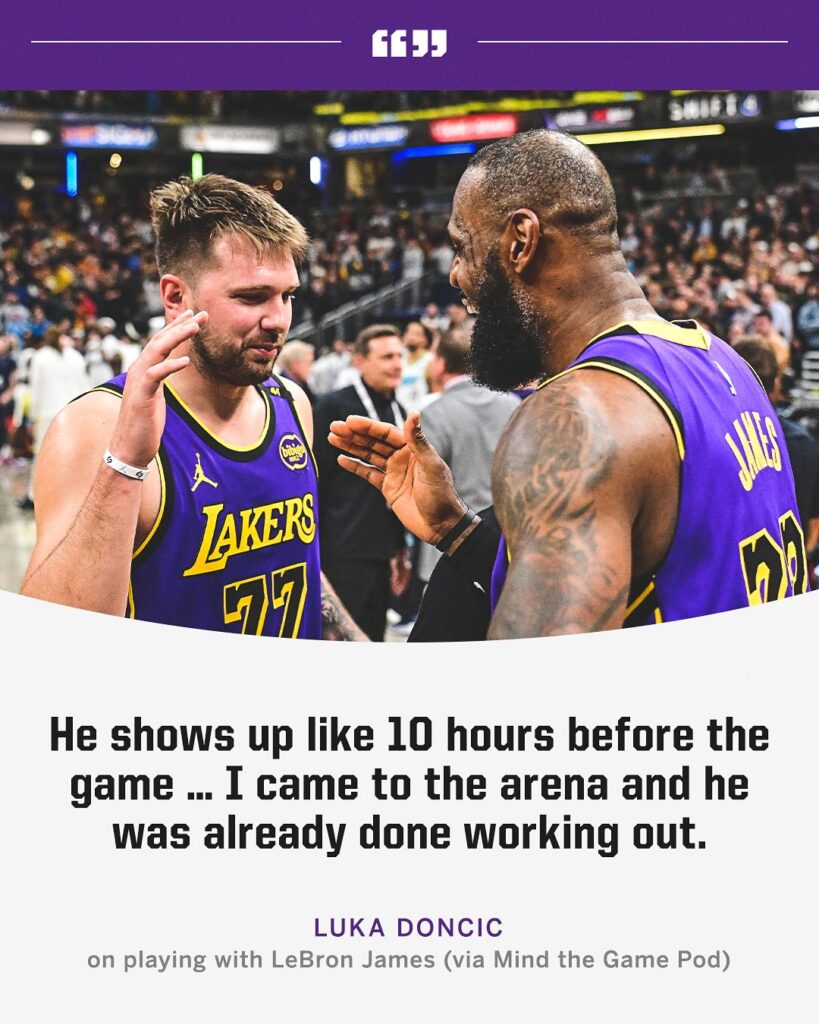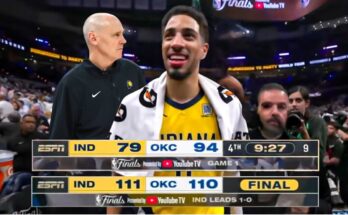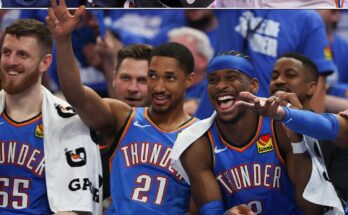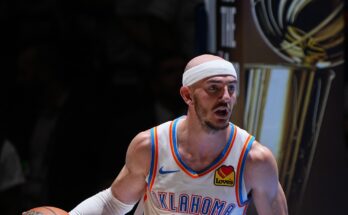
LeBron James is more than just an athlete—he’s a symbol of excellence, longevity, and evolution in modern sports. From the moment he stepped onto an NBA court in 2003 as an 18-year-old high school phenom, expectations were sky-high. Nearly 22 years later, he hasn’t just met those expectations—he’s exceeded them in ways that were once thought to be impossible.
LeBron’s résumé reads like a dream: four NBA championships, four MVP awards, two Olympic gold medals, a Finals MVP in three different decades, and the all-time leading scorer in NBA history. But numbers only tell part of the story. What makes LeBron’s legacy truly unique is how he’s maintained elite status across different eras, teams, and styles of play—all while adapting, evolving, and leading.
In an era where players come and go, fall off due to injuries or lack of motivation, LeBron has remained a constant. He has never missed the All-Star Game due to poor performance. He has never allowed complacency to set in. Every season, whether with Cleveland, Miami, or the Los Angeles Lakers, he has found new ways to stay at the top.
One of LeBron’s greatest strengths is his versatility. He can dominate at virtually every position. He’s a 6’9″, 250-pound freight train who can play point guard, power forward, or anything in between. His basketball IQ is often described as “coach-like”—he sees plays before they happen, knows the tendencies of every opponent, and often directs teammates in real time on the floor. He blends power, speed, finesse, and intelligence in a way the game has rarely seen.

Critics have often tried to compare him to Michael Jordan, and while those debates will never end, the truth is that LeBron’s greatness stands on its own. Jordan was the greatest of his era—dominant, efficient, and iconic. But LeBron’s career has been one of adaptability and sustained brilliance. He’s faced different generations of superstars, from Tim Duncan and Kobe Bryant to Kevin Durant and Steph Curry, and now outlasts a new wave that includes Luka Dončić, Jayson Tatum, and Victor Wembanyama.
His longevity is nothing short of remarkable. Most NBA players peak in their late 20s or early 30s. By 35, the majority are either declining or retired. LeBron, at age 40, is still averaging over 25 points per game, still dishing out assists, still taking over games in the fourth quarter. He’s competing against players half his age—and often outperforming them.
That kind of longevity doesn’t happen by accident. LeBron’s commitment to his craft is the stuff of legend. He spends millions annually on body maintenance—trainers, recovery tools, nutrition, and cutting-edge technology. He understands that greatness is earned in the details, in the early-morning workouts, in the off-day film sessions, in the constant drive for improvement.
But LeBron’s impact isn’t limited to what he does on the hardwood. Off the court, he’s a business mogul, philanthropist, and cultural icon. Through his media company SpringHill, he’s changing the way athletes tell their stories. Through his I PROMISE School in Akron, Ohio, he’s providing education and opportunity for underprivileged kids. And through his voice, he’s pushed for social justice, racial equality, and voter rights.
Very few athletes have ever been able to balance superstardom, business, activism, and consistent elite performance. LeBron has done it with grace and focus. He’s taken the platform that basketball gave him and built an empire that will last long after his playing days are over.
What’s perhaps most admirable is that he hasn’t let the pressure change him. From day one, LeBron has carried the weight of expectation. He was labeled “The Chosen One” in high school, graced the cover of Sports Illustrated before playing an NBA minute, and was expected to save a franchise—and maybe the league itself. Instead of folding under that pressure, he embraced it. And then he surpassed it.
Of course, his journey has had ups and downs. From the pain of early Finals losses to the criticism surrounding his move to Miami in 2010, LeBron has endured scrutiny that would have broken lesser stars. But each time, he responded with growth. He didn’t run from failure—he used it as fuel.
Now, as he approaches the twilight of his career, the conversation isn’t just about where LeBron ranks among the greatest basketball players—but where he ranks among the greatest athletes of all time, across all sports. Muhammad Ali, Serena Williams, Tom Brady, Michael Phelps—LeBron’s name belongs in that conversation.
Why? Because he’s done something that almost no one has done before: maintain greatness over two decades, evolve with the game, lead with integrity, and leave a lasting impact both on and off the court.
So yes, when we talk about greatness in sports, the name LeBron James is always in the conversation—if not at the top of the list.
And as his legendary career continues to unfold, one thing is clear: we are witnessing history in real time.



